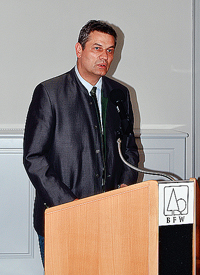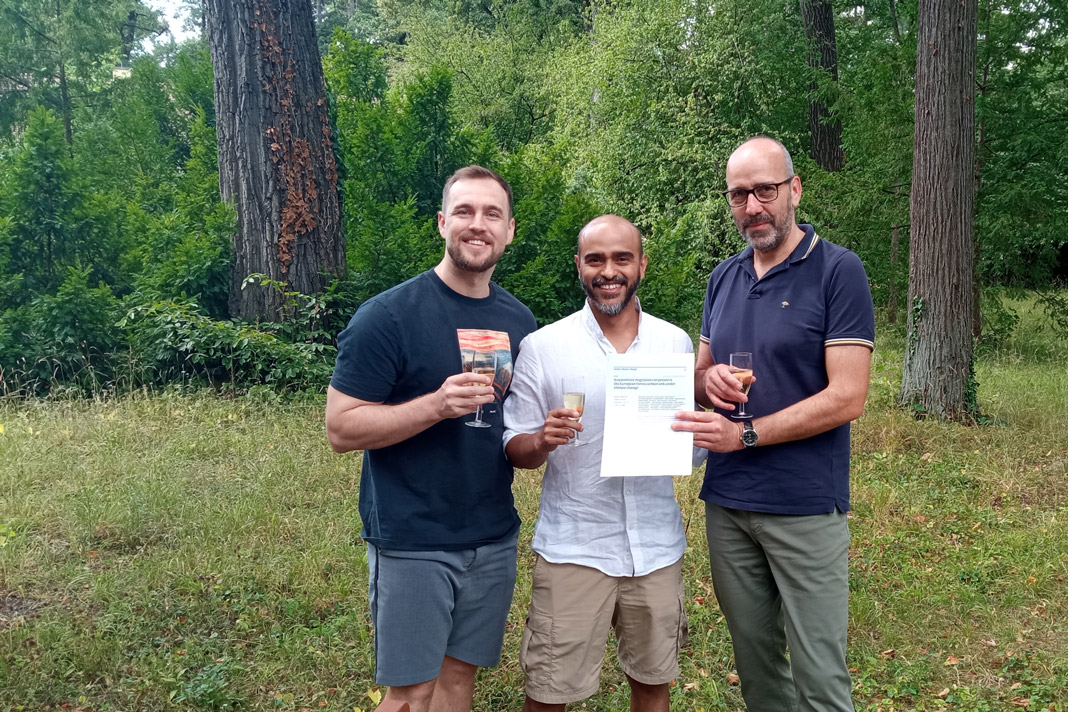Future forests - building on forest heritage foundations
Conservationists, foresters, bioenergy specialists, climatologists, social scientists and civil servants all came together for a special event on Forest biodiversity, genetic aspects in a European context, organised by BFW (The Austrian Federal Research and Training Centre for Forests, Natural Hazards and Landscape).
From Vienna
Conservationists, foresters, bioenergy specialists, climatologists, social scientists and civil servants all came together for a special event on Forest biodiversity, genetic aspects in a European context, organised by BFW (The Austrian Federal Research and Training Centre for Forests, Natural Hazards and Landscape).
The afternoon began with the ceremonial switching on of the EUFGIS information-sharing portal, featuring standardized data on gene conservation units across the entire distribution range of Europe’s forest trees. This function was performed by the Director General of the Austrian Federal Ministry of Agriculture, Forestry, Environment and Water Management – Mr Gerhard Mannsberger.
Mr Mannsberger congratulated the assembled forest specialists and country representatives on their hard work in bringing the EUFGIS project to fruition. He added that despite the many challenges facing Europe’s forests he was confident that the best route forward for their continued sustainable management lies in the further strengthening of pan-European co-operation. Austria is committed to maintaining its active role in the Forest Europe process, he said.
Dr Jarkko Koskela, the coordinator of the EUFGIS project at Bioversity International, thanked BFW for organizing the special event and noted that the portal is a concrete example of how the pan-European co-operation can benefit national efforts in managing forests.
The CEO of WWF Austria – Hildegard Aichberger – spoke about the role of genetics in nature conservation. She showed how genetic “tracking” of the families of the now rare wolves and bears in Austria was helping with understanding their origins and interconnections, providing useful knowledge for conservation and possible assisted breeding.
Afterwards she discussed the attitude of WWF Austria to the central subject of the Vienna meeting – dynamic gene conservation. Ms Aichberger confirmed, that in her view, conservation has to move on from a “fossilising” stance to one of greater, dynamic intervention if future generations are to have a reasonable chance of enjoying biodiversity.
“In Austria, we know that with climate change plants, trees and animals are tending to move northwards and upwards, in our country that is towards the Alps,” she said. “But on their own the species cannot move fast enough, we calculate that climate change here is moving seven times faster than species migration.”
Ms Aichberger accepted that in her field there was little that could be done directly about climate change effects, but that there were many other factors that could be addressed. One of these is ensuring that species have enough space in which to express their behaviour and survival. “We need to think differently about conservation – not just national parks or protected areas – but have large areas, interconnected with corridors to facilitate species movement.”
Other speakers in the session included Dr Reinhold Steinacker from the University of Vienna looking at climate change and discussing with Silvio Schuller of BFW whether appropriate forest genetic resources might help mitigate negative climate change effects.
Genetic resources for bioenergy production and the role of forest biodiversity in research, advocacy and capacity building in Central and Eastern Europe were also on the agenda.
Our mission in assembling these speakers was to share and explain the specialist subject of forest genetic resources to a more general audience and demystify it, said the organiser of the event Dr Thomas Geburek of BFW. “It has proved a useful start and now we must build further on such dialogue,” he said.
Related Links
- Austrian research centre for forests
- EUFGIS portal







